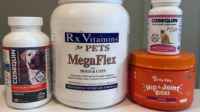Our Members Asked:
Can any supplements be used to reduce inflammation in people sensitive to NSAIDs such as ibuprofen, high-dose aspirin, or naproxen?

Answer:
Non-steroidal anti-inflammatory drugs (NSAIDs) are commonly used to reduce pain and swelling, but some individuals cannot take these medications due to NSAID-induced hypersensitivity reactions. Symptoms of these reactions may include shortness of breath, congestion, airway obstruction, skin wheals, swelling beneath the skin (angioedema), hives and, in some cases, anaphylaxis (Kowalski, Allergy Asthma Immunol Res 2015). While some people with NSAID-induced hypersensitivity react to only one NSAID, others react to multiple NSAIDs.
There are essentially two main types of hypersensitivity to NSAIDs. The first, which is least common, is an allergic reaction to a specific NSAID and possibly chemically similar NSAIDs. These patients may tolerate other NSAIDs that are not chemically similar. Most NSAID-induced hypersensitivity reactions, however, are not allergic reactions, but relate to sensitivity associated with inhibition of cyclooxygenase-1 (COX-1), which is a common property of many NSAIDs. This type of hypersensitivity is cross-reactive, meaning that these individuals may react to more than one NSAID, even ones that are not chemically similar. Although most of these individuals may tolerate NSAIDs that target cyclooxygenase-2 (COX-2), some may react to these more specific NSAIDs as well (Kowalski, Allergy Asthma Immunol Res 2015).
Sign in to the full answer to find out if supplements such as turmeric, fish oil, MSM (methylsulfonylmethane), SAMe (S-adenosyl-methionine), boswellia, ginger, white willow bark, arnica, or GLA (gamma-linolenic acid) may, or may not, be helpful to people sensitive to NSAIDs.
Join today to unlock all member benefits including full access to all CL Answers and over 1,400 reviews.
Join NowAlready a member? Sign In Here.
Join now at www.consumerlab.com/join/













Submit your comment
This feature is restricted to active members.
Join now to add comments and get all member benefits, including over 1,400 reviews.
Join NowAlready a member? Sign in here.